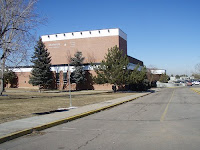
First, I'd like to say that was so inspiring and very much worth the time to watch. Dr. Pausch was so enthusiastic and energetic that I forgot he only had months left to live.
Achieving Your Childhood Dreams, the title of his last lecture, was about how he accomplished his list of childhood dreams. Even though he ran into some "brick walls," he still managed to complete his list.
Everyone experiences "brick walls," those times when you think you've gone as far as you can. However, Dr. Pausch said those brick walls are to separate the people who really want something from those who don't. I like his quote: "Experience is what you get when you didn't get what you wanted." That quote reminded me of the Rolling Stones' song, "You can't always get what you want," which I sing to my children when they ask for something they can't have.
There was one teaching method he talked about that really stuck in my mind. Dr. Pausch called it a "head fake," which is learning indirectly. An example he used was football as a child. Not only do children learn how to play football, they also learn things such as teamwork and sportsmanship. An example of my own is having my children in dance classes. They're learning how to dance, but they're also learning social skills such as learning how to meet new people and getting along with others.
Also, he talked about the importance of the way we word things. We should always know when to apologize and never give excuses. Helping others and having fun while learning are also important. Overall, the message I got from Dr. Pausch was to never give up. Dr. Pausch was a great inspiration to so many people. Even though his life was cut short, he has influenced many people and definitely will never be forgotten.











